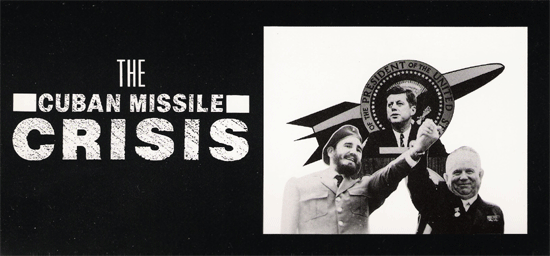Cuban Missile Crisis

December 1, 2017
A very pertinent issue in the news recently has been North Korea, and the possibility of nuclear war has become an elephant in the room. The Cuban Missile Crisis was a salient time in United States history when nuclear war was barely avoided. The Cuban missile crisis, also known as the October crisis, came about as a response to the failed Bay of Pigs invasion (1961) and the residence of American Jupiter ballistic missiles in Italy and Turkey. The Cuban missile crisis took place during the cold war, a struggle for arms between the Soviet Union and the U.S. Soviet leader Nikita Khrushchev and Fidel Castro struck a secret agreement to allow the Soviet Union to harbor nuclear missiles in Cuba, and nuclear launch sights for the missiles were constructed. Cuba is only 90 miles off the coast of Florida, making the peninsula a discernible target.
In October 1962, an American U-2 spy plane spotted and photographed the nuclear launch site, causing panic inside of the White House. The United States military set up a naval blockade around Cuba to prevent more nuclear missiles and war supplies from getting in. On October 22nd, President John F. Kennedy spoke to the nation about the current crisis via a televised address. Both the leaders from the U.S. and the Soviet Union knew that the effects of a nuclear war would be detrimental, and would negatively impact both parties equally. Thus, nuclear war was avoided. President Kennedy and Khrushchev negotiated for a long time before agreeing to a public compromise- The Soviet union would withdraw all nuclear weapons from Cuba, and the United States pledged not to invade Cuba. Over 25 years later, it was released to the public that President John Kennedy had also withdrawn all nuclear missiles from Turkey as a part of the compromise.
The only positive effect of the Cuban missile crisis was the precedent it set for future generations going through a similar struggle: being on the brink of a nuclear war. Recently, North Korea has been threatening nuclear war with the United States. If history repeats itself, which is beknown, nuclear war will cease to be elicited. If the current tense situation veers from the preliminary course of history, a number of negative effects will reveal themselves.

